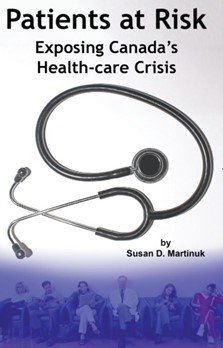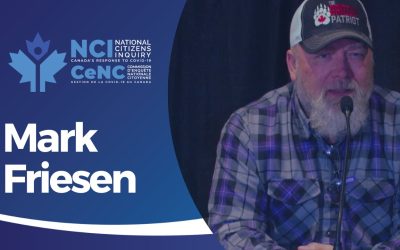The writ has been dropped and Albertans are off to the polls on May 29. That leaves just four weeks for political leaders and voters to sort out what is arguably the most divisive, yet significant, issue for this election – health care.
On Day 2, NDP leader Rachel Notley promised that a NDP government would expand hours at medical clinics and create family health teams to ensure that every Albertan has access to a family doctor, nurse practitioner, mental health therapist, pharmacist, social worker and dietician. She also plans to magically ease the pressure on emergency departments and ambulances.
If all of that seems like a dream that is too good to be true, it probably is.
Putting forth out-of-reach health-care promises during election campaigns is a ‘very Canadian’ thing to do. Voters like promises, and promises get governments elected. However, that is also why promises that are devoid of facts and reality can be so harmful and must be called out as such.
In short, Notley’s promises would require a massive investment in health-care personnel at a time when personnel and cash are in short supply. And by that, I mean really short supply.
Canada already has the second highest health-care spending in the world. The federal government doesn’t have the money to make major investments in health care so a huge, sustained tax increase for Albertans would likely be required for Notley’s plan to come to fruition.
According to Statistics Canada, job vacancies in the 2022 health-care sector were almost double that of 2020. The stress and – increased workloads associated with the pandemic have led to high rates of retirement and massive exits from the health-care professions.
Present enrollments in nursing schools are not sufficient to fill the vacancies and this holds true for doctors as well. In addition, it now seems that Canada’s newly-graduated medical students are particularly opposed to starting their medical careers in Alberta.
The Canadian Resident Matching Service matches graduating students and residents to appropriate training positions available across the country. Yet, after two iterations of matches for family medicine, Alberta still has more unmatched positions than other provinces. Currently, BC has zero positions available for new graduates. Saskatchewan? Zero. The same with Manitoba. Ontario has three positions still open while, inexplicably, Alberta has 22 positions waiting to be filled.
In 2022, the Alberta government invested $6 million in a rural physician recruitment program designed to attract 20 new physicians each year through 2024. Doctors who agreed to practice in a rural community for at least three years were to receive a $100,000 bonus. Seven months into the first year of the program, only one physician had been recruited.
The above data suggest that Alberta may have some unique challenges in recruiting personnel and that makes it even more difficult to imagine that Notley will be able to deliver on her multitude of health-care promises. Such practicalities will undoubtedly have a similar impact on any health-care agenda put to the voters by Premier Danielle Smith.
The physician shortage may be bleak in Alberta, but Canada has been notoriously negligent in attracting and keeping doctors for decades. The 1992 Barer-Stoddart Report wrongly concluded that Canada’s health-care costs were too high because there were too many doctors. That reduced medical school enrollments for decades and the policy continues to limit physician availability as increasing numbers of physicians retire. More than six million Canadians are now without a family doctor to guide their care.
Voters want to talk about promises more than they want to chat about facts and ideas. But real solutions can only come from substantive and honest discussions about policies. For that reason, Albertans who are frustrated with health-care delivery should use this election period to demand a public conversation that is grounded in facts, not promises.
By that, I mean a conversation where leaders offer a cohesive and realistic vision of health care delivery; where discussion goes beyond promises and throwing money (that they don’t have) at the problem. It should be a time where ideas and innovations to improve health care can be freely shared. Even Notley’s ‘promise’ of team-based care requires a shift in roles among health-care providers and that means we need to have a realistic conversation about how to best do that.
Empty promises will not fix health care. Politicians making such promises should be required to offer facts and evidence of how they can realistically be implemented.
Susan Martinuk is a Senior Fellow at The Frontier Centre for Public Policy and author of Patients at Risk: Exposing Canada’s Health-care Crisis.



